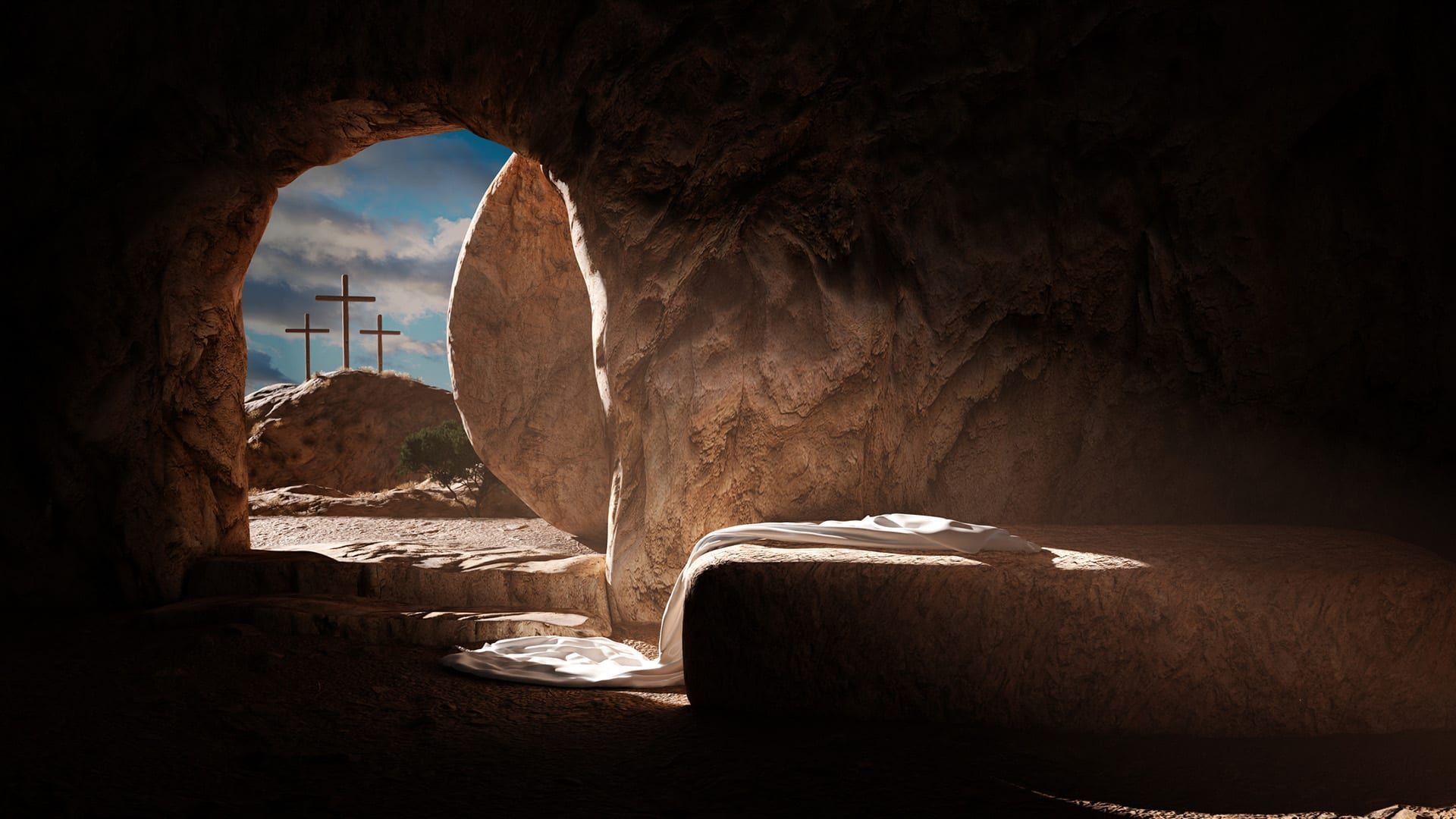Proof of the Resurrection
How We Know Jesus Rose

As I sit down to prepare for the sermon this coming Sunday, which happens to be Easter, I have thought much about the resurrection. There is nothing else as vital to the Christian faith as the resurrection. But, here we are 2000 years later. How can we be sure?
The resurrection of Jesus Christ is the cornerstone of the Christian faith. It is the event that sets Christianity apart from every other religion or worldview. Yet, for many people, the idea of a bodily resurrection seems impossible, and they may question whether there is any real proof that Jesus rose from the dead. There are several key factors I want you to notice that verify the resurrection.
The Empty Tomb
The first piece of evidence we'll look at is the empty tomb. All four Gospels record that Jesus was buried in a tomb owned by Joseph of Arimathea. On the third day after his death, the tomb was found empty by a group of women who had come to anoint Jesus' body. The fact that the women were the witnesses is a key part of the Gospel records. If the disciples wanted to lie they would have put themselves at the empty tomb and not the women. In this day a woman's testimony was not even usable in court. Had this all been a lie they would have tried to strengthen the lie as much as possible. The truth that the tomb was empty is significant, as it implies that something miraculous had occurred. If Jesus' body had simply been moved or stolen, it is unlikely that the disciples would have been willing to die for their belief in the resurrection.
The Eyewitnesses
Another important piece of evidence is the eyewitness accounts of the disciples. After the resurrection, Jesus appeared to his disciples on multiple occasions, and these encounters are recorded in the Gospels and in the book of Acts. These were people that at the time of the writings you could go and ask and they would gladly tell you what they saw. The disciples were so convinced of the reality of the resurrection that they were willing to die for their belief. They testified to what they had seen and heard, even in the face of persecution and martyrdom. The fact that so many people were willing to suffer and die for their belief in the resurrection is powerful evidence of its truth.
The Transformation of the Disciples
A third piece of evidence is the transformation of the disciples. Before the resurrection, the disciples were a group of frightened, disillusioned men who had abandoned Jesus in his hour of need. But after encountering the risen Christ, they were transformed into bold, fearless evangelists who proclaimed the Gospel to the ends of the earth. This transformation is difficult to explain unless something truly miraculous had occurred.
The Conversion of Saul
Next, we'll look at the conversion of Saul (later known as Paul). Saul was a zealous persecutor of the early church who was present at the stoning of Stephen, one of the first Christian martyrs. Yet, after encountering the risen Christ on the road to Damascus, Saul was transformed into one of the greatest champions of the Gospel. He traveled throughout the Mediterranean world, planting churches and sharing the message of salvation. The fact that someone like Saul could be so dramatically transformed is powerful evidence of the reality of the resurrection.
Church Growth
There are other factors that support the reality of the resurrection. One such factor is the growth and expansion of the early Christian church. The fact that Christianity spread rapidly throughout the Mediterranean world, despite persecution and opposition from the Roman Empire, is difficult to explain unless something truly miraculous had occurred. It's worth noting that the spread of Christianity was not due to political or military power, but rather to the power of the Gospel message and the transforming work of the Holy Spirit.
No Body Produced
Another piece of evidence is the fact that the Jewish leaders who opposed Jesus and his teachings did not produce a body to refute the claim of the resurrection. If Jesus' body had been available, the Jewish leaders would have had a powerful tool to discredit the claims of the disciples. But no such body was produced, indicating that something miraculous had occurred.
Eye Witnesses
The resurrection accounts were written so soon after the events they describe is also noteworthy. The Gospels were written within the lifetime of the eyewitnesses, and there are no records of anyone disputing their accuracy or authenticity. The fact that these accounts were not dismissed as mere legends or myths, but were instead embraced as historical fact, speaks to their truthfulness.
Prophecy
Finally, the resurrection of Jesus is consistent with the Old Testament prophecies that foretold the coming of the Messiah. The Hebrew Scriptures contain numerous prophecies that were fulfilled in the life, death, and resurrection of Jesus. These prophecies provide further evidence that Jesus was who he claimed to be, and that his resurrection was a fulfillment of God's plan of salvation.
In conclusion, the evidence for the resurrection of Jesus is multifaceted and compelling. The empty tomb, the eyewitness accounts, the transformation of the disciples, the conversion of Saul, the growth of the early church, the lack of a body produced by the Jewish leaders, the early writing of the Gospels, and the fulfillment of Old Testament prophecies all point to the reality of the resurrection. As Christians, we can have confidence in the truthfulness of our faith, and we can proclaim the Good News of the Gospel with boldness and conviction.









